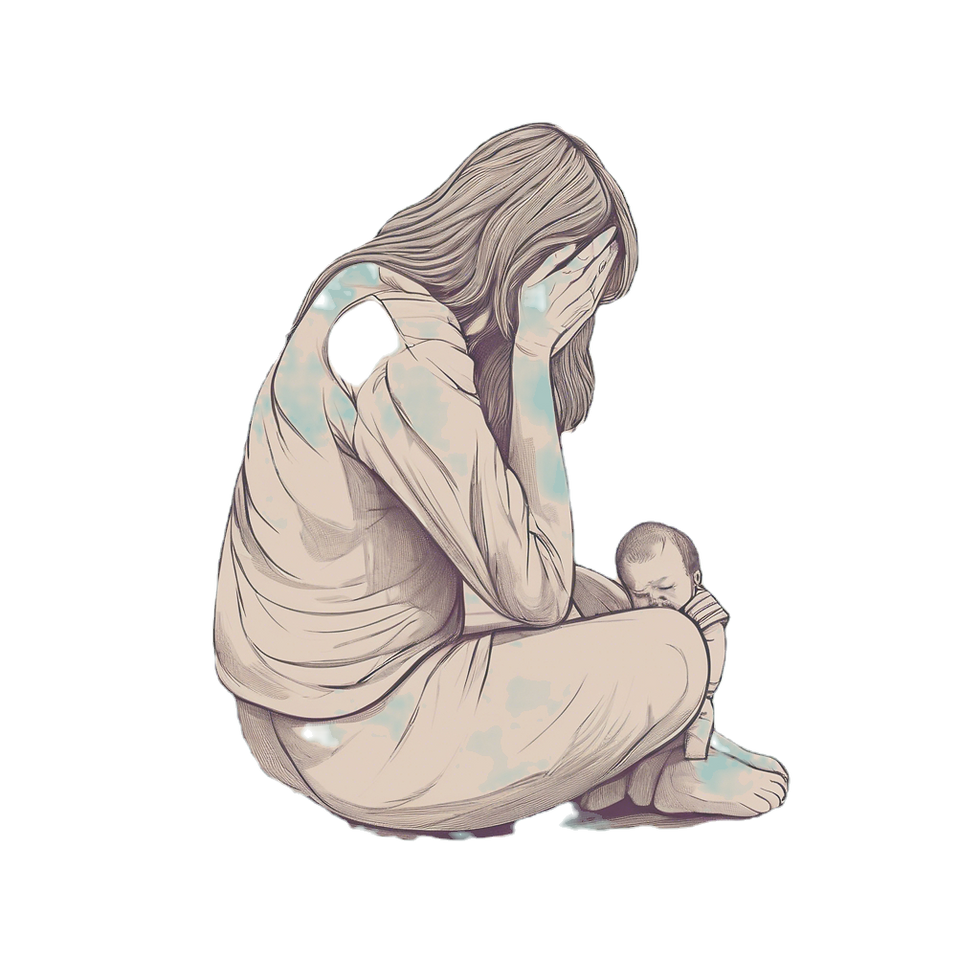Postpartum depression is a serious mental health condition that affects women after giving birth. It can occur within the first few weeks to months after childbirth and can have a profound impact on a woman's ability to care for herself and her baby. Recognizing the signs of PPD and seeking help are crucial for effective management and recovery.
Signs and Symptoms of Postpartum Depression
Persistent Sadness or Mood Swings: Feeling sad, hopeless, or overwhelmed for extended periods.
Loss of Interest or Pleasure: Losing interest in activities that were once enjoyable.
Fatigue or Loss of Energy: Feeling tired or having low energy levels, even with enough rest.
Changes in Sleep or Appetite: Difficulty sleeping or sleeping too much, changes in appetite or eating habits.
Feelings of Worthlessness or Guilt: Feeling like a failure as a mother or experiencing excessive guilt.
Difficulty Bonding with the Baby: Feeling disconnected from or unable to bond with the newborn.
Thoughts of Harming Yourself or the Baby: Having thoughts of self-harm or harming the baby.
Risk Factors for Postpartum Depression
History of depression or anxiety-Amanpreet, a 30-year-old woman, had a history of anxiety before becoming pregnant. After giving birth, she experienced intense feelings of sadness and hopelessness, which were later diagnosed as postpartum depression. Sarah's history of anxiety put her at a higher risk for developing postpartum depression.
Previous experience of postpartum depression: Neelima, a 35-year-old woman, had postpartum depression after the birth of her first child. Despite receiving treatment, she was at a higher risk for experiencing postpartum depression again after the birth of her second child. Emily's previous experience increased her vulnerability to the condition.
Lack of support from partner, family, or friends: Mahi, a 40-year-old woman, felt isolated and overwhelmed after giving birth. Her partner worked long hours, and her family lived far away, leaving her with little support. The lack of support exacerbated Maria's feelings of stress and contributed to her postpartum depression.
Stressful life events during pregnancy or after childbirth: Reena, a 45-year-old woman, experienced a difficult pregnancy due to complications. After childbirth, she faced financial difficulties and relationship problems, adding to her stress. These stressful life events increased Laura's risk of developing postpartum depression.
Hormonal changes and physical discomforts after childbirth: Indu, a 50-year-old woman, experienced hormonal changes and physical discomforts after giving birth, including sleep disturbances and fatigue. These physical changes, combined with the hormonal fluctuations that occur after childbirth, contributed to Jessica's postpartum depression.
Seeking Help for Postpartum Depression
Talk to Your Healthcare Provider: Discuss your symptoms with your healthcare provider, who can offer guidance and support.
Reach Out for Support: Lean on friends, family, or support groups for emotional support and practical help.
Consider Therapy: Individual or group therapy can be effective in managing postpartum depression.
Medication: In some cases, antidepressant medication may be prescribed to help manage symptoms.
Self-Care: Prioritize self-care activities such as rest, nutrition, exercise, and engaging in activities that bring you joy.
Conclusion
Postpartum depression is a common and treatable condition, but it is important to recognize the signs and seek help. With the right support and treatment, women can recover and enjoy a healthy and fulfilling bond with their baby. If you or someone you know is experiencing symptoms of PPD, reach out for help and support as soon as possible.

.png)

